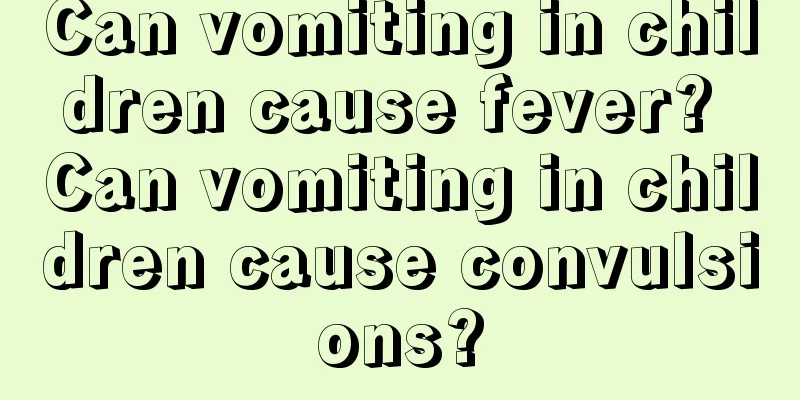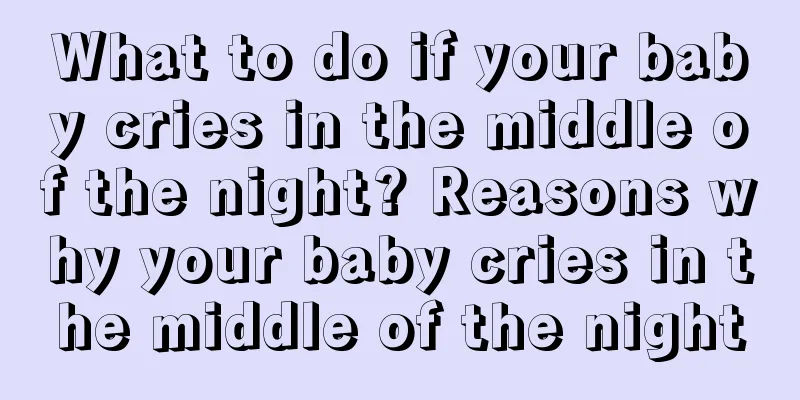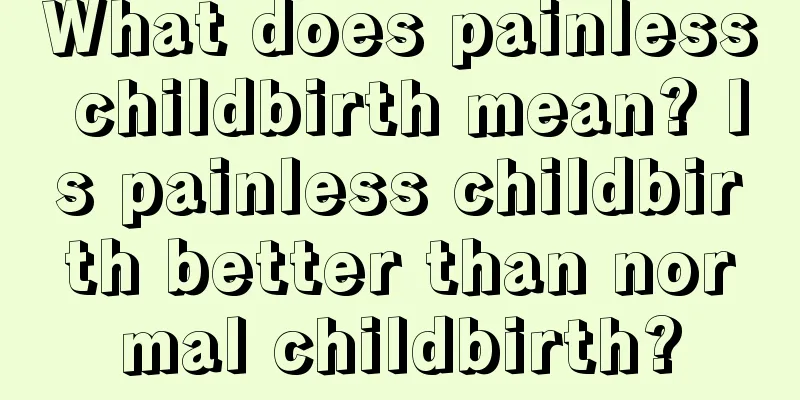Can vomiting in children cause fever? Can vomiting in children cause convulsions?

|
In daily life, we often see children vomiting. At the same time, many parents know that children's vomiting sometimes causes other symptoms. So, will children's vomiting cause fever? Will children's vomiting cause convulsions? Can vomiting cause fever in children?The possibility of vomiting during a baby's fever is caused by infection, especially diseases such as gastritis. Some can also cause diarrhea, muscle aches, abdominal pain, etc. You can give your baby ibuprofen granules for treatment, and oral vitamin b6 can relieve symptoms when vomiting. Baby fever is mainly caused by viral infection, respiratory tract infection, and gastrointestinal inflammation. During this period, the baby's diet should be small and frequent. You can eat some light and easily digestible liquid food. Avoid eating greasy and spicy food, which will burden the gastrointestinal tract. When vomiting symptoms are severe, pay attention to replenishing the baby with water to avoid hair loss. Let the baby rest more and avoid the child running around. Can vomiting cause seizures in children?Vomiting in children normally will not cause convulsions, and vomiting is generally caused by gastrointestinal discomfort, such as eating unclean food, or eating food that is too hard, so the child will vomit because it is not digested well after eating. If the baby vomits more severely, causing electrolyte imbalance and vomiting a lot of times, the child's stomach is greatly stimulated, which may cause convulsions. Therefore, when the child vomits, the cause should be clarified and medication should be used to stop vomiting in time. If the child vomits and has convulsions, it is necessary to consider that the vomiting caused by neurological diseases such as encephalitis, meningitis and other diseases can cause the child to have vomiting and convulsions. At present, it cannot be diagnosed, and it is also necessary to combine medical history and related examinations to determine the cause. The child's condition needs to be examined in the neurology department of the hospital once to avoid vomiting caused by encephalitis and other diseases. If the vomiting is caused by general gastrointestinal dysfunction, there are symptoms of vomiting, and generally there will be no convulsions. Vomiting and convulsions need to be examined in the hospital once according to regulations to avoid delaying treatment. Is vomiting contagious?Generally speaking, baby vomiting is not contagious. It is mostly caused by indigestion, mainly because the baby's own gastric function is not fully developed. Generally speaking, if a child vomits, there will not necessarily be an infection problem, because vomiting is a common symptom in childhood. If it is not treated in time, it will affect the baby's intake of nutrients. In severe cases, it may cause dehydration or electrolyte disorders. In clinical medicine, when vomiting, the contents of the child's stomach are reversed into the esophagus and spit out through the mouth. There is no problem of infection. Moreover, vomiting is only a common symptom, and the primary disease needs to be determined to make an obvious judgment. Will vomiting cause dehydration in children?How long it takes for a child to become dehydrated after vomiting depends on the degree of dehydration and the speed of vomiting. Generally speaking, the longer and more frequently a child vomits, the more severe their dehydration will be. Therefore, when a child vomits, parents should replenish their water in time, otherwise it will cause gastrointestinal problems and electrolyte imbalance. If the child is severely dehydrated, he can go to the hospital for infusion treatment to replenish the body's water. Vomiting in children can also lead to nutritional deficiencies in the body, and the child needs to be supplemented with nutrition in time. However, children have poor stomachs when vomiting. If the child is allowed to eat immediately after vomiting, vomiting may occur again. Therefore, parents wait for a while after the child stops vomiting, and then prepare light and easily digestible food for them. In addition, vomiting in children may be related to their digestive tract malformations, that is, children with congenital esophageal atresia, pyloric hypertrophy and other gastrointestinal diseases, which can cause children to vomit and feel uncomfortable. Therefore, when parents see their children vomiting non-stop, they should take them to the hospital for treatment in time to avoid fainting, shock, etc. |
<<: Are breast milk storage bags healthy and safe? What are the precautions for milk storage bags?
Recommend
What is the reason why children cannot concentrate? What elements are missing from children's lack of concentration?
Many children have difficulty concentrating. Why ...
Can pregnant women eat ugly oranges? Can pregnant women eat ugly oranges?
Ugly orange is a special variety of orange. Altho...
When is the easiest time to conceive? Best posture for conception
Wanting to have a baby is also a technical job. I...
Where is the best place to travel in the summer of 2017? Where is the best place to travel in the summer of 2017?
Summer vacation is coming soon, and many parents ...
How to buy clothes for your baby? A guide to buying clothes for your baby
Buying clothes for babies is a headache for many ...
What skin care products are good for breastfeeding mothers? Recommendations for safe and effective skin care products for pregnant women
During breastfeeding, mothers will pay attention ...
How to protect infants' throats? Seven tips to protect throats
Children's throats are very fragile and need ...
What medicine should children take after vomiting? What food should children eat after vomiting?
Vomiting is a very normal phenomenon. Many childr...
Can babies eat meat at six months old? Is it better for a six-month-old baby to eat meat or drink broth?
Meat is an indispensable food in our lives, and i...
Efficacy and side effects of Tianxi Pills Does Tianxi Pills have any side effects?
Many mothers who are planning to have a baby must...
Sharing my personal experience on things not to do during pregnancy
Many people will tell us that we cannot do this o...
Does breastfeeding prevent breast cancer? Does not breastfeeding cause breast cancer?
Can breastfeeding prevent breast cancer? Today, l...
Can pregnant women eat Wutacai? Who should eat Wutacai?
Wutacai is actually a green vegetable, but there ...
3 things you shouldn't do in front of your children
First, don’t quarrel in front of your children, a...
Do newborns need to drink water when they are breastfed? Do newborns need to drink water?
Do newborns need to drink water after breastfeedi...









